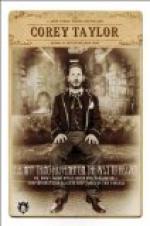Carmencita was by nature cyclonic. Her buoyancy and bubbling spirits, her enthusiasms and intensities, were well understood, but how could she possibly know Stephen Van Landing? All day he had been strangely on her mind, always he was in her heart, but thought of him was forced to be subconscious, for none other was allowed. Of late, however, crowd it back as she would, a haunting sense of his presence had been with her, and under the busy and absorbed air with which she had gone about the day’s demands there had been sharp surge of unpermitted memories of which she was impatient and ashamed.
Also there had been disquieting questions, questions to which she had long refused to listen, and in the crush and crowd they had pursued her, peered at her in unexpected places, and faced her in the quiet of her room, and from them she was making effort to escape when Carmencita burst in upon her. The latter was too excited, too full of some new adventure, to talk clearly or coherently. Always Carmencita was adventuring, but what could she mean by demanding to know the name of her sweetheart, and by saying she had found him and then lost him? And why had she, Frances Barbour, told her as obediently as if their positions were reversed and she the child instead of Carmencita?
Elbow on the table and chin in the palm of her hand, she tapped the desk-pad with her pen and made small dots in the large circles she had drawn on the paper, and slowly she wrote a name upon it.
What could Stephen Van Landing be doing in this part of the town? He was one of the city’s successful men, but he did not know his city. Disagreeable sights and sounds had by him been hitherto avoided, and in this section they were chiefly what was found. Why should he have come to it? That he was selfish and absorbed in his own affairs, that he was conventional and tradition—trained, was as true to-day, perhaps, as when she had told him so three years ago, but had they taught him nothing, these three years that were past? Did he still think, still believe—
With a restless movement she turned in her chair, and her hands twisted in her lap. Was she not still as stubborn as of old, still as proud and impatient of restraint where her sense of freedom and independence of action were in question, still as self-willed? And was it true, what Carmencita had said—was she giving herself to others and refusing herself to the only one who had the right to claim her, the royal right of love?
But how did she know he still needed her, wanted her? When she had returned to her own city after long absence she had told of her present place of residence to but few of her old friends. Her own sorrow, her own sudden facing of the inevitable and unescapable, had brought her sharply to a realization of how little she was doing with the time that was hers, and she had been honest and sincere when she had come to Mother McNeil’s and asked to be shown the side of life she had hitherto known but little—the sordid, sinful, struggling side in which children especially had so small a chance. In these years of absence he had made no sign. Even if it were true, what Carmencita had said, that he—that is, a man named Van Something—was looking for her, until he found her she could not tell him where she was.




